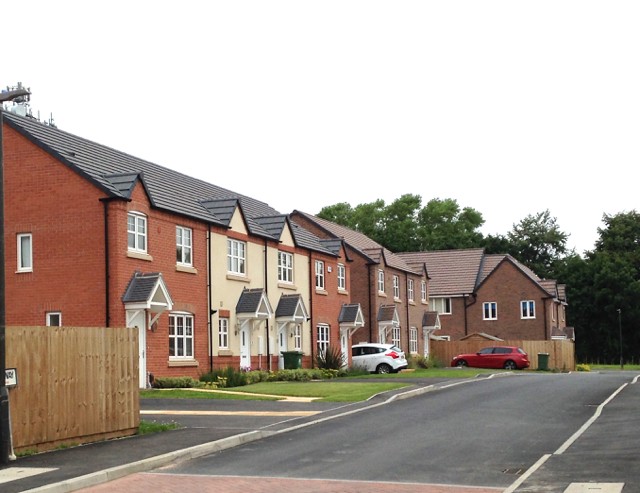
The old claim that property prices will double every 10 years has proved itself untrue since the 2007 credit crunch. Property prices can and do fall from time to time – but it’s important to remember that this isn’t always bad news for everyone.
If you have no plans to move home or increase your mortgage for, say, an extension, then a drop in value is of little consequence to you. You have what you need – a roof over your head – and, by the time you do get round to selling, prices may well have recovered.
And if you are a first-time buyer or investor, lower property prices are just what you are looking for, especially if you are able to hang on to the property until values rise again.
Equally, falling prices can be helpful if you are hoping to upsize. Admittedly, you may get less for your current home, but what you do get should stretch further when it comes to buying a larger property.
So although we get very nervous about property price falls, actually many people can benefit!
There are several factors which affect prices and can drive them down. These include:
The health of the economy is firmly intertwined with people’s confidence, availability of finance and, of course, supply and demand.
In a struggling economy, wages stagnate and job stability is affected, meaning people may lack the confidence to commit to a house move, unless they have to – for example, to relocate or because their needs have changed drastically.
With people reluctant to move house, the number of buyers is reduced, resulting in supply outstripping demand and sellers being forced to drop their prices or accept lower offers if they really want to move on.
It is not just buyers who are more cautious when the economy is struggling; lenders, too, will tighten up their lending criteria and demand higher deposits, as we saw during the credit crunch. In the two years between July 2007 and 2009, the number of mortgage products available fell by a staggering 91%, from 27,962 to just 2,282, according to research by Moneysupermarket.com.
If finance is harder to secure, buyers will be harder to find and, again, prices will fall.
It is the economy which can make finance harder to secure across the property market as lenders are more risk averse, but there are more localised factors which come into play, too.
For instance, lenders have different criteria for lending on ‘unusual’ properties, as the risks are seen as too great. Some will not lend on listed buildings; some won’t lend on flats above four storeys. Basically any property which is considered a higher risk is harder to finance, which can reduce its value.
A recent example is the case of leasehold properties where the ground rent doubles every 10 years, meaning the annual ground rent bill could soar into the thousands in 50 years’ time. Nationwide became the first major lender to refuse to lend on properties with these controversial leasehold terms, in a move to protect both themselves and future buyers. But this is bad news for people who already own such a property, as this limits the number of lenders willing to provide finance, which in turn reduces the number of potential buyers and therefore drives down the value.
As explained in How Politics and Economics affects Property, the property market is particularly susceptible people’s confidence. This is not just linked to the security of their own financial situation but to how they believe the property market is performing… and, crucially, what the media is telling them. Pessimistic headlines warning of a slowing market can become a self-fulfilling prophecy as they can instil sufficient anxiety in potential home-movers to make them postpone their plans. If enough people do this, the predicted slowdown can become a reality and vendors find themselves forced to reduce their prices if they really must sell.
Another factor which can causes prices to fall is when properties are in plentiful supply and buyers are thin on the ground. When fewer buyers are searching for properties, they are in a strong position to negotiate, especially with vendors who are keen to get moving.
Read more about supply and demand in What increases property prices in the UK.
By observing properties for sale in your area, you can form a rough assessment of the state of your local property market. Read how to do this in our checklist:
| How to work out my property market |
 |
Just as investment in a local area can boost house prices, it can also reduce them if it is seen to negatively impact the area.
Nearby construction work can temporarily make your property less desirable while it is ongoing but if you can sit it out, your home’s value should recover, as research by Countrywide discovered when investigating the potential impact of the HS2 route.
But while a railway station can make an area more desirable – and property prices rise – because it makes commuting easier, a new railway line can devalue properties by bringing noise to a previously quiet area. This is especially topical right now because of the new HS2 rail link; you can read more about its potential effects on property prices and how compensation can be claimed in HS2 – good, bad and the ugly and what you need to know about compensation and house prices.
Other local factors can have an effect too, albeit temporary. Estate agents in Salisbury reported a 8.8% dip in house prices in the wake of the novichok poisonings, although this should be taken with a pinch of salt as only time will reveal the true effects, if any.
Banks and building societies have strict criteria for lending on leasehold properties so this is another example of how a lack of availability of finance can diminish values.
Most flats are sold on a leasehold basis, which means you pay the leaseholder (who owns the whole building) for the use of the property for the term of the lease, which could be as long as 999 years or more.
However, many flats previously sold with 99-year leases which have now dropped below 70-80 years could be dropping in value. Lending criteria on flats is typically restricted to flats which have 80 years plus left on the lease. If the flat has a remaining lease of 80 years or less, this restricts the number of lenders who will lend, so limits the number of buyers. If the lease length left is low, only cash buyers can purchase, reducing demand even further. It’s the same for properties which are not ‘standard construction’, have subsidence or other related problems which increase the risk of the lender being able to sell it should you default on payment.
Basically, any property which is hard to mortgage naturally reduces in value, as its appeal is limited to cash buyers only.
| How to choose an expert to value your leasehold extension - ALEP |
 |